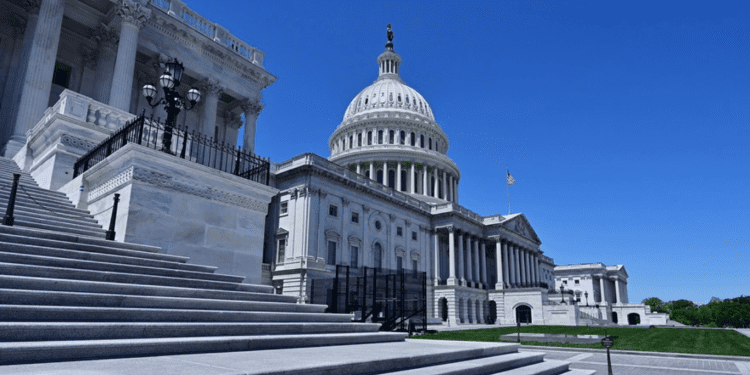- A fresh U.S. bill targets cryptocurrency service providers, requiring them to report off-chain transactions to an official registry.
- U.S. Representative Don Beyer initiates the “Off-Chain Digital Commodity Transaction Reporting Act” on September 28, focusing on a CFTC-registered repository.
- The objective is to bolster protection for digital currency investors against fraud and manipulation linked to off-chain dealings.
In recent days, cryptocurrency has been the spotlight of legislative discussions, with a novel proposal entering the scene. U.S. Representative Don Beyer recently proposed a groundbreaking piece of legislation designed to enhance transparency in the world of digital currency.
The “Off-Chain Digital Commodity Transaction Reporting Act” calls on digital currency platforms to disclose all off-chain dealings to a specific registry overseen by the Commodity Futures Trading Commission (CFTC). Off-chain transactions are those that happen outside the primary blockchain system. Unlike their on-chain counterparts, which get immediately recorded on the blockchain, these off-chain deals undergo processing in secondary layers, making them challenging to monitor.
With the rapid surge of such trading platforms aiming to boost transaction speed and cut down on expenses, countless off-chain transactions remain invisible on the blockchain that’s open for public viewing. This invisibility can potentially leave a gap in standardization of records amongst different digital platforms. Such inconsistency in records can expose consumers and investors to potential risks of deceit and other manipulative actions. Beyer emphasized the essence of this bill, pointing out that it’s an intuitive step towards reviving trust and transparency in the digital currency marketplace.
As per the outlined provisions of this legislation, platforms offering cryptocurrency services will have a responsibility to disclose all off-chain transactions to the mentioned CFTC-backed trade registry within a day of the transaction taking place. It’s worth noting that this stipulation echoes the existing standards for almost every securities and swap transaction.
Cryptocurrency and its regulation have been a recurring subject of scrutiny in the U.S. legislature. In the previous month, nine senators expressed their backing for Senator Elizabeth Warren’s initiative, the “Digital Asset Anti-Money Laundering Act.” This act, which made its reentry into legislative discussions in July 2023, is poised to tighten the leash on non-bank digital wallets. It also seeks to extend the purview of the Bank Secrecy Act and other related legal actions, all in an effort to curb the illegal applications of digital currencies.
CFTC Considers Crypto Regulation Pilot
The U.S. Commodity Futures Trading Commission (CFTC) is charting a cautious yet constructive path toward cryptocurrency. Rather than taking a combative stance, the regulatory body leans more toward understanding and managing the burgeoning industry. Internal perspectives might differ among the commission’s members, but the overarching sentiment is steering the industry under regulatory standards.
A notable move in this direction is Commissioner Caroline Pham’s recent proposition of a pilot program specifically tailored for cryptocurrency regulation within the CFTC. Such initiatives underline the commission’s intention to be at the forefront of ensuring that the digital asset market operates with integrity. Topmost on the CFTC’s agenda, as with other regulatory entities, remains the commitment to safeguarding consumers and upholding the rule of law in the financial landscape.














